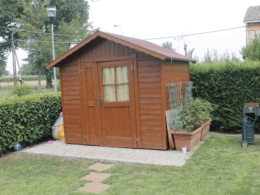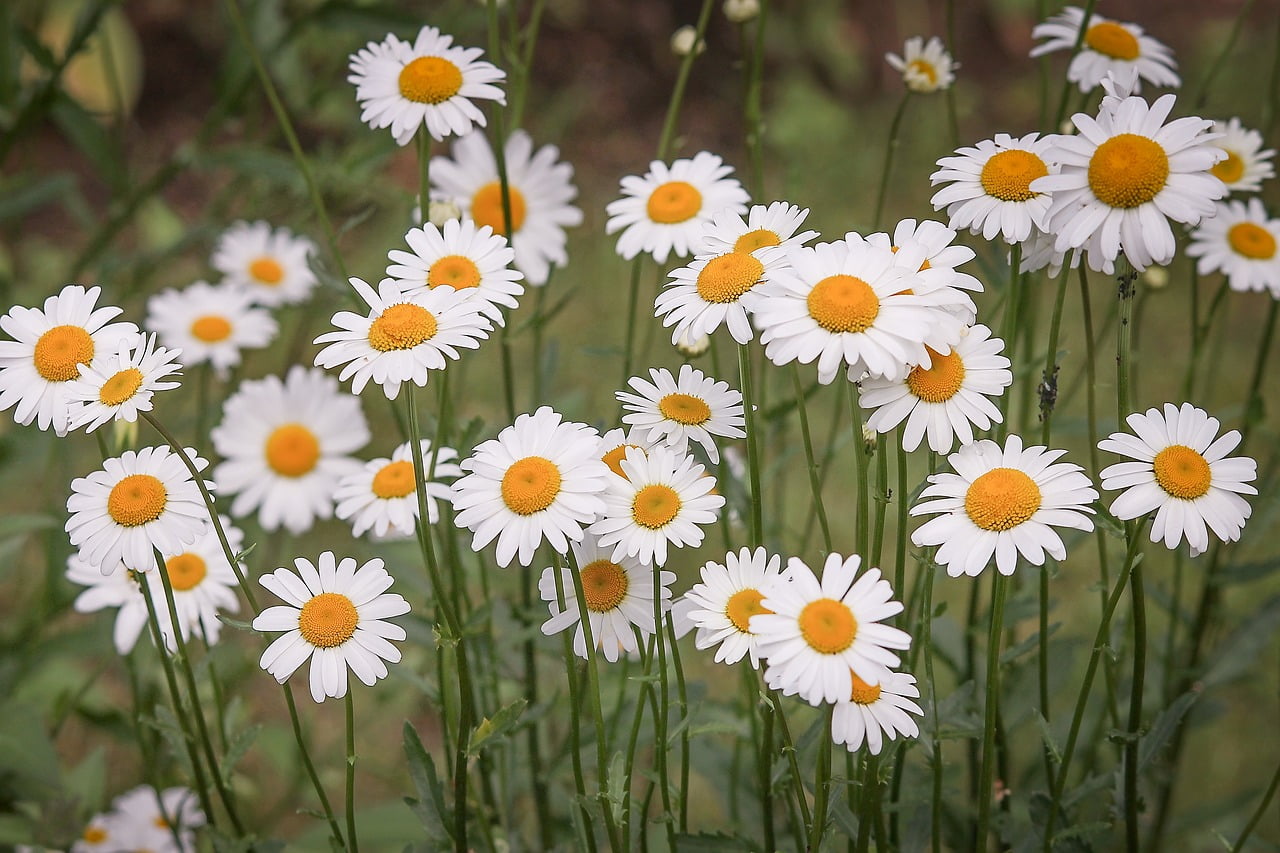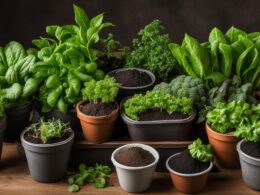Are you tired of dealing with pesky bugs that invade your houseplants? Don’t worry, we’ve got you covered with effective home remedies that are both natural and non-toxic. Say goodbye to yellowed leaves, wilting, and stunted growth caused by houseplant pests like whiteflies, spider mites, and aphids. With these simple solutions, you can keep your indoor garden thriving and insect-free.
When it comes to tackling houseplant bugs, it’s essential to opt for natural remedies that are safe for you and your plants. By following these natural solutions, you can effectively eliminate pests without resorting to harmful chemicals.
Key Takeaways:
- Inspect new plants before bringing them home to prevent pest infestations.
- Examine plants before bringing them indoors from outdoor placements.
- Avoid overwatering to keep pests away.
- Use soap and water sprays, neem oil, or herbal sprays with essential oils to naturally eliminate pests.
- Rubbing alcohol, diatomaceous earth, and yellow sticky traps can also be effective in controlling pests.
Spotting Bugs on Houseplants
If you notice your houseplants exhibiting signs of distress such as yellowed leaves, wilting, or stunted growth, it may be an indication of a pest infestation. Houseplant pests like whiteflies, spider mites, and aphids can cause significant damage if left untreated. By learning how to spot these bugs on your houseplants, you can take prompt action to eliminate the infestation and protect your indoor garden.
One of the most noticeable signs of a pest infestation is yellowing and dropping leaves. This can be caused by pests feeding on the plant’s sap, depriving it of essential nutrients. In addition to yellowed leaves, you may also observe small webs or fine webbing, indicating the presence of spider mites. Aphids, on the other hand, can leave behind a sticky residue called honeydew, which can attract ants. Other pests like thrips or scale can cause wilting and stunted growth, while broad mites can lead to deformities in leaves.
Regularly inspecting your houseplants can help you identify these pests early on. Take the time to closely examine the leaves, stems, and undersides of the foliage. Look for any signs of bugs, such as tiny crawling insects, eggs, or webs. Remember to also check the soil for any signs of pests or their larvae. By familiarizing yourself with the common houseplant pests and their telltale signs, you can quickly spot any infestations and take appropriate measures to address them.
Common houseplant pests and their signs:
- Whiteflies: Tiny white insects that fly up when disturbed; leave behind white, powdery residue on leaves.
- Spider mites: Tiny pests that create fine webs on the undersides of leaves; can cause yellowing and leaf drop.
- Aphids: Small, soft-bodied insects that cluster on new growth; leave behind sticky honeydew residue.
- Thrips: Slender insects that can cause silver streaks or white patches on leaves; can result in wilting.
- Scale: Small, immobile pests that appear as bumps on stems or leaves; can cause leaf yellowing.
- Broad mites: Microscopic pests that can cause deformed leaves and stunted growth.
By being vigilant and regularly checking your houseplants for signs of pests, you can catch an infestation early and prevent it from spreading to other plants. Taking quick action will help protect your indoor garden and ensure your plants remain healthy and vibrant.
How to Get Rid of Bugs on Houseplants
If you’ve noticed bugs on your houseplants, don’t worry – there are natural remedies that can effectively eliminate these pests and keep your indoor garden healthy. Follow these steps to get rid of bugs on your houseplants:
Inspect new plants:
Before bringing new plants into your home, it’s important to thoroughly inspect them for any signs of pests. Look for visible insects, webs, or any other indications of infestation. This step will help prevent introducing pests to your existing plants.
Examine plants before bringing them indoors:
If you’ve had plants outdoors during the warmer months, examine them carefully before bringing them back inside. Outdoor plants are more likely to harbor pests, so it’s crucial to check for any bugs or eggs that may have hitched a ride.
Avoid overwatering:
Overwatering can create a humid environment that attracts pests like fungus gnats. Make sure to water your plants only when necessary and avoid letting water accumulate in the bottom of pots. This will help keep the bugs away.
Use natural sprays:
A soap and water spray can be a highly effective method for getting rid of bugs on houseplants. Mix a mild liquid soap with water in a spray bottle and apply it to the affected plants. Another natural option is neem oil, which has insecticidal properties. You can also try herbal sprays with essential oils, like rosemary, sage, basil, or lavender, to repel pests.
By following these natural remedies and taking preventative measures, you can successfully eliminate bugs and protect your houseplants from future infestations.
| Recommended Natural Remedies | Benefits |
|---|---|
| Inspecting new plants | Prevents introducing pests |
| Examining plants before bringing them indoors | Identifies and removes pests |
| Avoiding overwatering | Reduces attractiveness to bugs |
| Soap and water spray | Effective against a wide range of pests |
| Neem oil | Natural insecticidal properties |
| Herbal sprays with essential oils | Repels pests |
“Inspecting new plants and examining them before bringing them indoors are crucial steps to prevent introducing pests to your houseplants.”
“Using natural remedies like soap and water sprays, neem oil, and herbal sprays ensures that you eliminate bugs without resorting to toxic chemicals.”
Natural Remedies for Houseplant Bugs
When it comes to dealing with houseplant bugs, opting for natural remedies is not only effective but also non-toxic, ensuring the health and vitality of your indoor garden. Here are some natural solutions that can help you get rid of those pesky pests:
Neem Oil
Neem oil is a potent natural pesticide derived from the neem tree. It is effective against a wide range of houseplant bugs, including aphids, spider mites, and whiteflies. Simply dilute neem oil according to the instructions on the packaging and spray it on the affected plants. The oil works by disrupting the feeding and reproductive cycle of the pests, ultimately eliminating the infestation.
Soap and Water
A soap and water spray is a simple yet effective remedy for houseplant bugs. Mix a mild liquid soap with water and use a spray bottle to apply the solution on the infested plants. The soapy water suffocates the pests and helps to remove them from the leaves. This remedy is especially useful for combating aphids, spider mites, and other small insects.
Herbal Sprays
Using herbal sprays with essential oils can be an excellent way to deter and eliminate houseplant bugs. Essential oils from herbs like rosemary, sage, basil, and lavender have natural insect-repelling properties. Dilute a few drops of essential oil in water and use a spray bottle to apply the mixture on your plants. The pleasant aroma of these herbs will help keep the bugs at bay, while also adding a refreshing scent to your indoor space.
| Remedy | Effectiveness | Ease of Use | Cost |
|---|---|---|---|
| Neem Oil | High | Easy | Medium |
| Soap and Water | Moderate | Easy | Low |
| Herbal Sprays | Moderate | Easy | Low |
These natural remedies provide effective solutions for dealing with houseplant bugs. Whether you choose to use neem oil, soap and water sprays, or herbal sprays, it’s important to stay consistent with your treatment and monitor the progress. By taking a natural approach, you can protect your plants and create a healthy environment for them to thrive.
Can the Natural Solutions for Whiteflies also be used for other houseplant bugs?
When dealing with houseplant bugs, many wonder if the natural whitefly home remedy can effectively combat other pests. While specifically formulated for whiteflies, these natural solutions often contain ingredients that can repel and control various types of houseplant pests. Thus, the natural whitefly home remedy can indeed be utilized for other houseplant bugs as well.
Conclusion
By opting for natural solutions, you can effectively eliminate and prevent houseplant pests while keeping your indoor garden healthy. Inspecting new plants and examining them before bringing them indoors is crucial to prevent the introduction of pests. Avoid overwatering, as it can attract fungus gnats and other pests.
Using natural remedies like soap and water sprays, neem oil, herbal sprays with essential oils, rubbing alcohol, diatomaceous earth, and yellow sticky traps can help you combat houseplant pests. Soap and water sprays are effective against aphids and spider mites, while herbal sprays with essential oils deter pests. Rubbing alcohol can be used to kill and remove insect pests, and diatomaceous earth and yellow sticky traps can control pests that live in the soil or fly around the plants.
Remember, choosing non-toxic and natural solutions is not only effective but also safe for you, your family, and your environment. By following these natural remedies, you can enjoy a pest-free indoor garden and ensure the well-being of your houseplants.
FAQ
What are the common signs of houseplant pest infestations?
Common signs of houseplant pest infestations include yellowed leaves, wilting, stunted growth, and the presence of small bugs on the leaves or in the soil.
How can I prevent bringing pests into my house with new plants?
To prevent bringing pests into your house with new plants, inspect them thoroughly before purchasing or bringing them home. Look for any signs of pests, such as bugs or sticky residue on the leaves.
How can I prevent overwatering and attracting fungus gnats?
To prevent overwatering and attracting fungus gnats, make sure to only water your houseplants when the top inch of soil feels dry. Avoid overwatering and ensure proper drainage in your plant pots.
What natural remedies can I use to get rid of houseplant pests?
Natural remedies to get rid of houseplant pests include using a soap and water spray, neem oil, herbal sprays with essential oils, rubbing alcohol, diatomaceous earth, and yellow sticky traps.
How does neem oil help eliminate houseplant pests?
Neem oil, a natural oil derived from the neem tree, can be effective in combating pest infestations. It disrupts the pests’ life cycle and acts as a repellent, preventing further infestations.
How can rubbing alcohol be used to kill insect pests on houseplants?
Rubbing alcohol can be used by applying it to a cotton swab and dabbing it directly on the pests. The alcohol kills the bugs on contact and can be effective in removing them from the plant.
How does diatomaceous earth help control pests in the soil?
Diatomaceous earth is a natural substance made from fossilized remains of diatoms. It is sprinkled on the soil and acts as a barrier, drying out and killing pests like ants, mites, and sowbugs.
How do yellow sticky traps help control flying pests?
Yellow sticky traps are adhesive traps that attract flying pests like fungus gnats, whiteflies, and aphids. The insects get stuck to the traps and cannot escape, helping to control their population.











